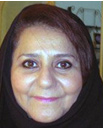| Radical Islamism & Jihad | |
| 30 Jun 2011, NewAgeIslam.Com |
| Extremists Need a Dose of Reality | ||
 Innovations always would be initially resisted and labelled as “Bidaa,” meaning an un-Islamic practice, before finally being accepted by society. For example, the introduction of photography, and television were met with great resistance before they were accepted or tolerated in the 1960s. They perceive any change as a threat that would undermine their authority and control. Their ideology still remains the same — intolerant of any change. The resistance to modernize Saudi Arabia by the religious scholars during the early rule of King Faisal was far greater than it is today, yet he continued to modernize the country and defied the fundamentalists without compromising Islamic values and principles. During the 1990s, satellite dishes, cellular phones and the Internet were strongly attacked before they became popular and adopted for religious affairs. -- Samar Fatany Innovations always would be initially resisted and labelled as “Bidaa,” meaning an un-Islamic practice, before finally being accepted by society. For example, the introduction of photography, and television were met with great resistance before they were accepted or tolerated in the 1960s. They perceive any change as a threat that would undermine their authority and control. Their ideology still remains the same — intolerant of any change. The resistance to modernize Saudi Arabia by the religious scholars during the early rule of King Faisal was far greater than it is today, yet he continued to modernize the country and defied the fundamentalists without compromising Islamic values and principles. During the 1990s, satellite dishes, cellular phones and the Internet were strongly attacked before they became popular and adopted for religious affairs. -- Samar Fatany | ||
| Extremists Need a Dose of Reality | |
By Samar Fatany
We can’t be a global leader and medieval backwater at the same time.
The Saudi leadership has pushed for modernizing the country since the 1950s. However, what slows progress always is the religious extremists who resist any change in the traditional lifestyle.
Innovations always would be initially resisted and labelled as “Bidaa,” meaning an un-Islamic practice, before finally being accepted by society. For example, the introduction of photography, and television were met with great resistance before they were accepted or tolerated in the 1960s. They perceive any change as a threat that would undermine their authority and control. Their ideology still remains the same — intolerant of any change.
The resistance to modernize Saudi Arabia by the religious scholars during the early rule of King Faisal was far greater than it is today, yet he continued to modernize the country and defied the fundamentalists without compromising Islamic values and principles.
King Faisal had several major encounters with the extremists including introducing education for women and girls, establishing the first television station, lifting the ban on music and songs and introducing pension and social insurance programs.
In 1964 King Faisal launched the first television station. The TV station was met with even stronger condemnation to the extent that there was an armed attack on the station. However, the encounter with art lasted longer. Art was never encouraged. Photography, sculpture, painting, theatre and film were prohibited. Cameras were confiscated and destroyed. It was only during King Fahd's rule in the 1970s that attempts were made to raise the cultural and artistic standards in the Kingdom.
The 1976 attack on the Grand Mosque in Makkah by extremists created a major setback for Saudi reforms and attempts to modernize the country. The militants advocated a return to medieval days and stricter religious laws, in particular an end to education for women and the abolition of television. Unfortunately, after that incident more rigid Islamic policies were imposed, and the path of progress was delayed for many years.
The struggle to preserve archaeological sites and Saudi antiquities is another conflict between reformers and hard-liners and it still goes on until this day. Extremists have destroyed much of our valuable heritage and continue to resist government initiatives to protect our sacred and historical sites in Makkah and Medina.
During the 1990s, satellite dishes, cellular phones and the Internet were strongly attacked before they became popular and adopted for religious affairs. Common fatwas stated that a person who watched TV, listened to music, or whose family did not cover their faces was a sinner. Some fatwas even made it permissible to kill the owner of satellite TV networks because they broadcast immoral content. Today there are many networks funded and supported for Islamic programs.
King Abdullah University for Science and Technology is another example of extremist scholars' resistance to change. KAUST, King Abdullah's coeducational, world-class research center, has been openly condemned by one senior religious official and other extremist scholars who issued a fatwa stating that the lack of segregation in the university is forbidden in Islam. That senior religious official was later fired, and all voices against the beacon of knowledge were silenced once and for all.
King Abdullah's personal involvement in supporting this project stems from his desire to serve humanity and promote the true spirit of Islam. It has been his dream for many years. In his inaugural speech, the king said, “Humanity has been the target of vicious attacks from extremists who speak the language of hatred ... undoubtedly; scientific centers that embrace all peoples are the first line of defence against extremists. And today this university will become a house of wisdom to all its peers around the world, a beacon of tolerance.”
Source: Arab News
|




 Moderate Islamist here
Moderate Islamist here


0 comments:
Post a Comment